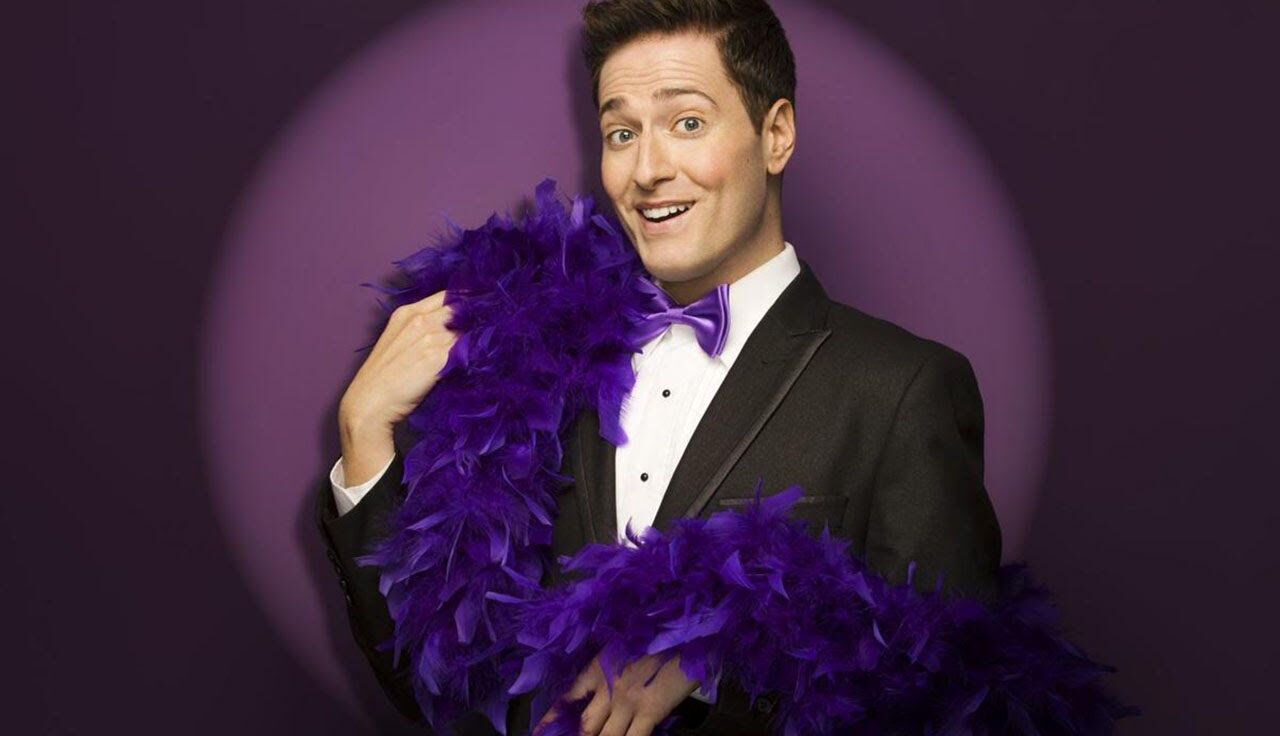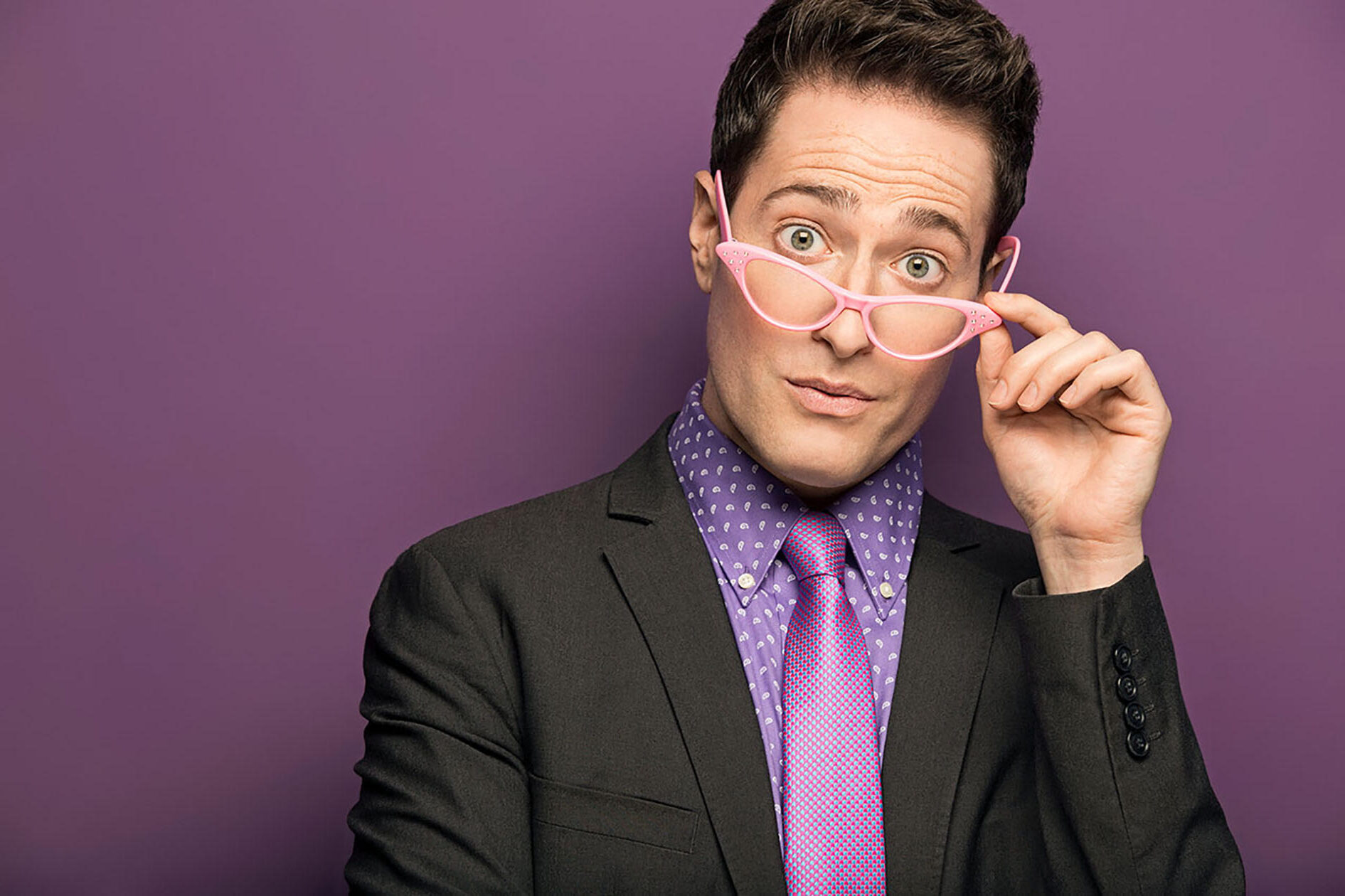THE MIGHTY TONGUE
Randy Rainbow Leads a New Breed of Satirists


In 1729, Jonathan Swift caused quite a rumpus when he penned A Modest Proposal. Written three years after his Gulliver’s Travels, the essay outlined a simple solution to the food shortages that were crippling impoverished Ireland — people ought to start eating children. If you, like millions of others, read Swift’s proposal in high school, you probably didn’t get more than eight paragraphs in before realizing that the man that wore breeches was pulling your leg. If you didn’t, you likely spent a considerable amount of time in the principal’s office, didn’t play well with others and believed The Onion when they named Korea’s Supreme Leader, Kim Jong Un, the sexiest man alive.
Since the 7th Century BC when the Greek poet Archilochus was able to shame an entire prominent family into suicide, satire has been an effective tool in changing people’s perceptions. While modern-day satirists seem incapable of shaming our current President into drinking hemlock (or anything other than a Diet Coke), they do cast a light on the social and political injustice he has brought about. Along the way, satire often results in high Nielsen ratings (think Alec Baldwin as Donald Trump), box office receipts (JoJo Rabbit), and, if we’re lucky, change.
With its diversified population, rampant inequalities and challenged, but still existent freedom of speech, America has been a fertile breeding ground for political satire since before founding father Benjamin Franklin started publishing his epigrams in Poor Richard’s Almanac. But we’re not the only ones who resort to comedy to bring about change. During the Weimar Republic, when Germany was coming to terms with having lost both the first World War and its leader, Kaiser Wilhelm, people flocked to cabarets where they poked fun at their new government and found solace in humor in the face of a threatening and uncertain future. Among German satirists, Kurt Tucholsky, whom The New York Times said, “Was as famous as the kings of American late night-comedy are now,” observed “A satirist is an offended idealist.” He censured the rising right wing in a series of columns, poems and cabaret songs, but was no more powerful than a late-night host when it came to affecting the elections.
Times have changed. Many people credit Tina Fey’s scathing 2008 imitation of vice-presidential candidate Sarah Palin for helping dash John McCain’s presidential hopes. And what would politics have been like without Jon Stewart’s commentary on The Daily Show? During his 16-year reign, the popular host increasingly focused on political satire, and Indecision, his mocking coverage of the 2000 presidential recount, won the show its first EMMY award.
Stewart proved to be capable of delivering much more than a punchline when he appeared in front of Congress in June 2019 and shamed them for not backing the James Zadroga 9/11 Health and Compensation Act. The bill, providing aid to those who became ill after working at ground zero, was stalled in Congress until Stewart’s impassioned plea chastened the House Judiciary subcommittee and helped get the bill passed. With the show’s audience of digital natives and digital adopters, Mr. Stewart was one of the first on-air hosts to employ the Internet effectively and become a part of web culture.
Flash forward to the current election cycle where a new breed of political satirists, a generation of observers who owe their fame to the Internet, are flexing their muscles. Back In 1968 when Andy Warhol predicted that “In the future, everyone will be famous for 15 minutes,” network anchors were the custodians of public opinion. Thanks to social media, today anyone with a computer has a pulpit and can shape public opinion.
Chief among these digital crusaders are comedienne and writer, Sarah Cooper, and Randy Rainbow, the cat-eye glasses wearing YouTube sensation. For those of you who have been living under a rock, Ms. Cooper (who was recently profiled here on PROVOKR) is the TikTok sensation who became the darling of the anti-Trump set by letting the President speak for himself. Lip-synching to Trump’s absurd, stream of conscious diatribes, she shines a bright light on his jaw-dropping inanities. “I’m not trying to a do an impression of Trump,” she told Wired. And why would she? The greatest comedy writer in the world couldn’t come up with more side-splitting buffoonery than the president himself.
Unlike Cooper, Randy Rainbow (yes, that’s his real name) wants to be heard. In fact, he wants to sing out loud. His musical parodies about the current administration have made him the political commentator that everyone is talking about. Born on Long Island and raised in Florida, Mr. Rainbow is what some might call a theatre queen. “I was obsessed with Broadway,” he recently told The New York Times. You just have to watch one of the videos he writes, directs, produces, edits and stars in to see his adoration for musical theatre and his talent for satire.
Watching him tackle the key issues of the day while dressing down Trump and his swamp full of cronies is reminiscent of watching Joel Grey as the MC in Bob Fosse’s Nazi-era film, Cabaret singing If You Could See Her about his girlfriend, a gorilla, who, if seen through his eyes, “wouldn’t look Jewish at all.”
Mr. Rainbow’s talent has garnered him a coterie of famous fans including 7-time Tony Award winner, Stephen Sondheim, who told The Washington Post that Rainbow’s lyrics are “Brilliant” and “as good as any writing today.” What would you expect from a kid whose father was a bandleader and whose mother wanted to be Bernadette Peters?
In 2011 he created the hilarious Randy Rainbow is Dating Mel Gibson video and an ascending star was born. Things really took off when his videos started focusing on the current administration. With two EMMY nominations for Outstanding Short Form Variety Series under his belt, and a just-announced book deal with St. Martin’s Press for his memoir, Playing with Myself, the world certainly seems to be his oyster – although given the photographs of Judy Garland, Barbra Streisand and Bette Davis that adorn his apartment, one gets the feeling that “oysters” are definitely off his menu. Before the coronavirus sidelined the entertainment industry, he was booked on a multi-city tour, and his Upper West Side apartment was recently featured in The New York Times real estate section. No surprise he’s too busy provoking to talk to PROVOKR.
It’s hard to imagine that Jonathan Swift ever played a concert tour, but in his day, he was as popular, if not more, than Rainbow and Cooper are today. While his monetary rewards may not have been as meaningful, his satire is still being read 300 years later. Time will tell if Rainbow and Cooper’s work will be as enduring. In the meantime, there’s no mistaking them for anything less than the satirical sensations they are.


